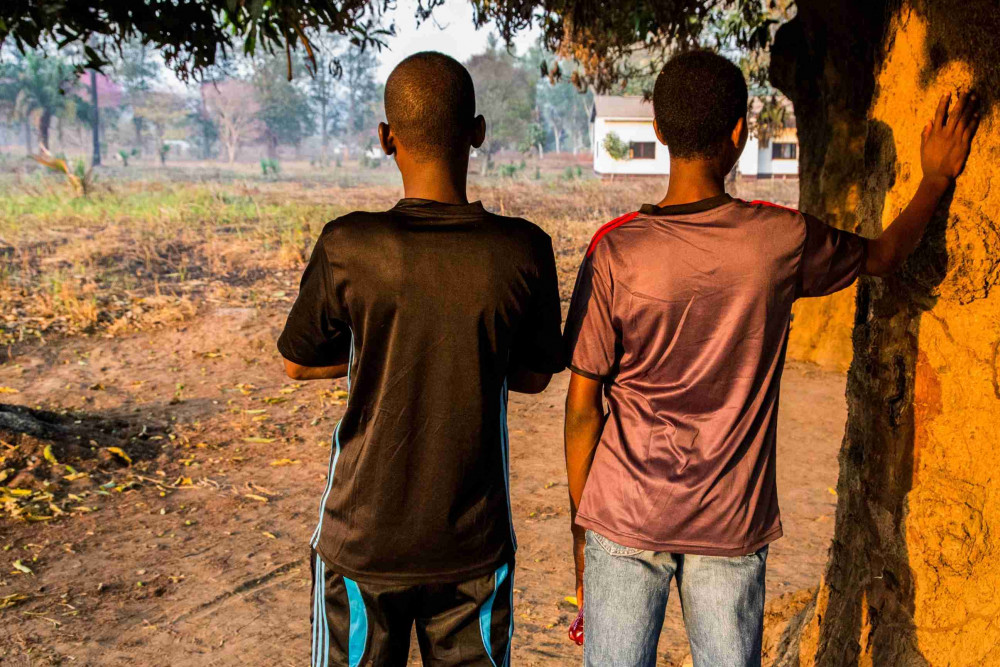
Violent conflict severely impacts young people, who without guidance and hope of a better future, are often drawn into armed groups or seen to be aggressors.
However, given the support, confidence and skills, young men and women have proven time and again that they can become leaders for peace in their societies. Helping to build a more peaceful and prosperous future for everyone.
The Central African Republic has faced tumultuous cycles of violence since the former president was overthrown in 2013. Despite a 2019 peace accord, disputed elections in December 2020 sparked fresh violence and the forming of a new coalition of armed groups.
There are now 738,000 internally displaced people there, half of whom are children, and 2.3 million who are food insecure – almost half the country's population.
With partners, we have been working with over 600 young people in the Central African Republic, giving them the knowledge and skills to analyse conflicts, mediate disputes and broadcast messages of peace.
These young people now have renewed hope and optimism – they are moving away from a path of violence and encouraging others to do the same. By creating more peaceful and stable societies, they are helping communities to thrive.
They are de-escalating conflicts and actively preventing violence from breaking out. For example, when a machete was brandished during a football game, one of the young peacebuilders helped prevent the violence from escalating. They have also been working with the authorities during the coronavirus pandemic, to stop the spread of misinformation.
One of these young people, Adeline*, has been broadcasting messages of peace on the radio, and recently was involved in stopping a dispute between two rival tribes from turning violent.
“I am very happy and proud to realise how people take on board the messages of peace we deliver over the radio. Now I know that people really hear our appeal and some of them have already started to change.”
And Emmanuel*, formerly known as a ‘troublemaker’ who as well as preventing a violent outbreak between his mother and Uncle, has been advocating for the rights of children working in a mine close to him.
Adeline and Emmanuel have proved that with the right help and guidance young people can turn away from violence and actively prevent conflict in their communities. In 2020 alone, across all the countries where we work, we reached 14,382 young people.
However, the situation in the Central African Republic and elsewhere is deteriorating. We urgently need your help now to support more young people and end cycles of violence. £30 could train up to 30 young people in peacebuilding and mediation, who can then go on to train and support hundreds more, helping to make communities more peaceful.
Any donations you make will go towards enabling Conciliation Resources and partners to help people in regions of conflict like Adeline and Emmanuel to reject violence and build a more peaceful future.
Thank you.
*Not their real names
Image: Two former child soldiers, Central African Republic. Credit: Jack Losh

